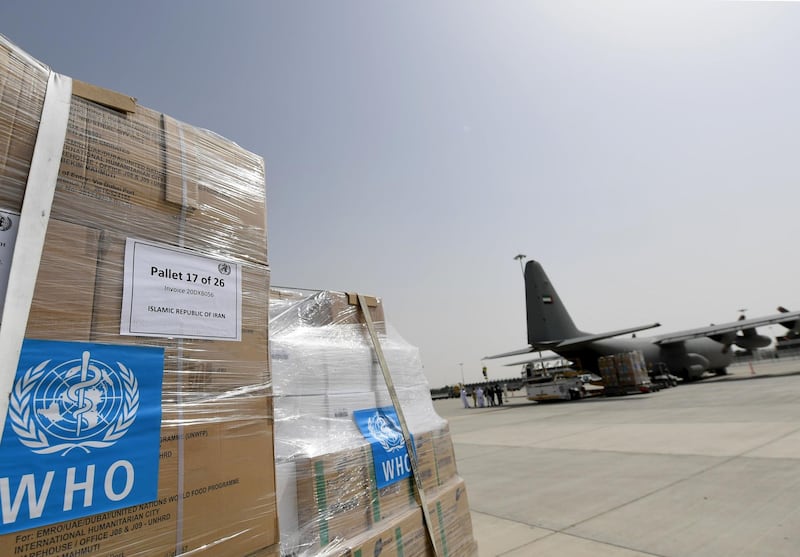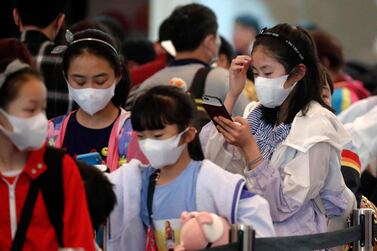Times of crisis usher in a moral duty to band together. When the crisis transcends politics or boundaries – as in the case of coronavirus – the response must transcend those obstacles, too.
The coronavirus has already claimed more than 3,000 lives worldwide. Overcoming it requires a host of severe measures such as isolation and containment, and so many nations in the Middle East – where cases have been reported from Egypt and Lebanon to Bahrain, the UAE and Iran – have taken unprecedented steps to restrict travel and postpone public gatherings, among other things.
Iran is the worst-hit country in the region and the third-most affected in the world, with more than 2,300 infected and dozens of deaths reported. The infected include at least 23 politicians and several other government officials. To slow the spread of the virus, Iran’s neighbours, including the UAE, have halted all flights to Iran and discontinued travel to and from the country.
But these actions are not incompatible with maintaining a spirit of community and compassion towards one’s neighbours, and the UAE has been active in promoting this message. On Monday, the UAE Air Force deployed a plane carrying 7.5 tonnes of emergency medical supplies and life-saving equipment from Dubai to Tehran.
The aid package is worth Dh1 million and was arranged by the World Health Organisation through Dubai’s International Humanitarian City. It delivers much-needed relief to 15,000 healthcare workers in Iran. The country has been under international sanctions for decades as a result of Tehran’s long-standing policy of aggression overseas, and Iranian authorities are now struggling to contain the coronavirus epidemic. The international community and Iran’s neighbours have reached out to help save lives and support the country.
Globally, coronavirus has infected 90,000 people from 60 different countries. The WHO has been active in more than 40 coronavirus-stricken countries to contain the outbreak. As a global health agency, the WHO ultimately relies on the assistance of its constituent nations, all of whom must contribute as much as they can.
WHO Secretary General Tedros Adhanom Ghebreyesus thanked Sheikh Mohamed bin Zayed, Crown Prince of Abu Dhabi and Deputy Supreme Commander of the Armed Forces, for his support in ensuring the success of the aid mission. Other nations have followed suit, with France, Germany and the UK offering Dh20 million and laboratory testing equipment to Tehran via the WHO.
In a show of international solidarity, the US said last month that it would approve humanitarian aid to North Korea, should that nation also face a coronavirus crisis. South Korea is home to the largest outbreak outside of China, but its neighbour to the north has so far not publicly declared any cases of the disease.
Viruses know no borders, politics or status – as pointed out by Iran’s deputy health minister, who has himself been infected – and the only way to counter them effectively is to fight them on those same terms. Iran’s people, as well as those of all other affected nations, deserve full support to overcome this crisis.






